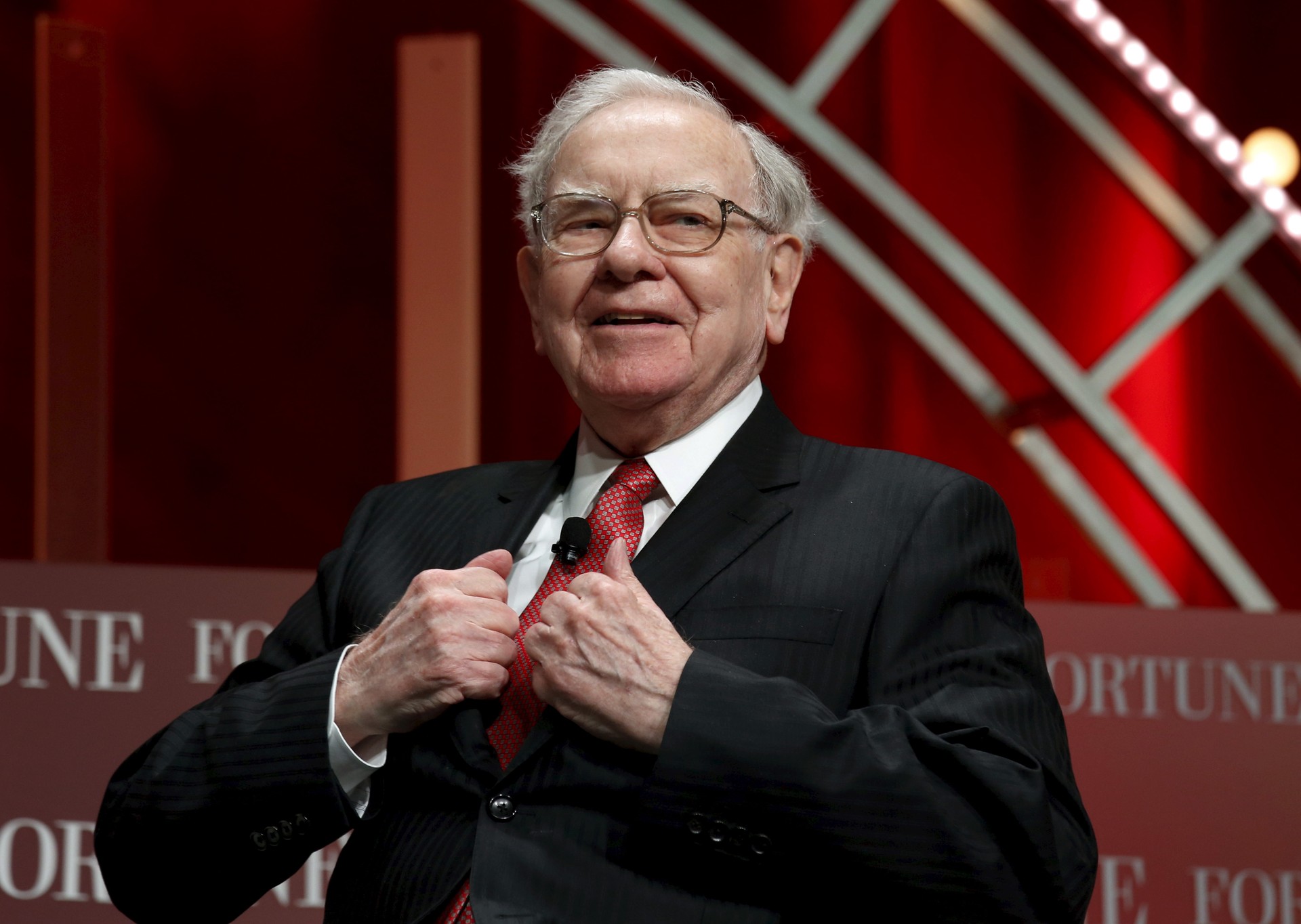Warren Buffett's Berkshire tops Fed in Treasury holdings
Warren Buffett, chairman and CEO of Berkshire Hathaway, takes his seat to speak at the Fortune's Most Powerful Women's Summit in Washington October 13, 2015 (Reuters Photo)
August 08, 2024 05:31 PM GMT+03:00
Warren Buffett’s Berkshire Hathaway has made headlines by amassing $234.6 billion in U.S. Treasury bills, outpacing the Federal Reserve’s holdings of $195.3 billion.
- Why it matters: Treasury bills are short-term securities backed by the U.S. government, typically seen as one of the safest investments. Buffett’s decision to pivot heavily toward Treasury bills underscores his preference for secure, stable returns over the potential volatility of equities.
Buffett’s investment philosophy
Buffett has always been a proponent of Treasury bills, once calling them “the safest investment there is” during Berkshire’s annual shareholders meeting in May. With the Fed maintaining interest rates between 5.25% and 5.5%, the yields on the bills have become increasingly attractive.
As of Aug. 2, three-month Treasury bills offered a return rate of 5.05%, while six-month and 12-month bills provided 4.68% and 4.18% returns, respectively.
- In his own words: "When you can't find anything more attractive, holding cash or near-cash is the right thing to do," Buffett explained, emphasizing the importance of safety and liquidity in uncertain times.
Record cash pile and reduced equity holdings
Berkshire’s earnings report for the second quarter of 2024 revealed that the company’s cash reserves swelled to a record $276.9 billion. This increase came as Buffett sold off significant portions of Berkshire’s equity holdings, including halving its stake in Apple.
- Apple holdings: Previously, Apple had been one of Berkshire’s largest equity investments, valued at $174.3 billion. However, Buffett has now reduced this stake by more than half, bringing it down to $84.2 billion. Despite this reduction, Apple remains a significant part of Berkshire's portfolio, but the drastic cut signals a notable shift in Buffett's investment strategy.
- Bank of America: In addition to Apple, Berkshire also sold nearly $4 billion worth of Bank of America stock, further increasing its liquidity.
- Context: These sales are part of a broader trend, with Berkshire reducing its equity holdings for seven consecutive quarters. The magnitude of these sales, totaling roughly $75 billion in the second quarter alone, has led many to view Buffett's actions as a warning about the broader economic outlook.
Bigger picture: Buffett’s view on market conditions
Buffett’s cautious approach comes amid global economic turbulence and market volatility. With the Federal Reserve’s ongoing efforts to tighten monetary policy, often referred to as quantitative tightening, there’s a general pullback in liquidity, which has made Buffett's conservative strategy more appealing.
- Expert insight: "Berkshire’s shift toward cash and cash equivalents signals a conservative stance, reflecting Buffett's concerns about overvalued stocks and potential market corrections," said Cathy Seifert, director at CFRA Research.
- "Buffett's risk management approach is evident in his increased holdings of Treasury Bills and reduced exposure to high-profile stocks," Seifert added.
Impact of Treasury yields
Buffett’s massive investment in Treasury bills is set to generate substantial returns, with an estimated $12 billion in annual risk-free gains for Berkshire Hathaway. This shift aligns with Buffett’s strategy of capital preservation during periods of economic uncertainty.
- Zoom in: Berkshire’s portfolio now heavily favors short-term government debt over equities, a move that mirrors the company’s approach during previous periods of market instability. With Treasury yields offering attractive returns, Buffett has capitalized on the opportunity to bolster Berkshire's financial stability.
Federal Reserve’s role and market reaction
The Federal Reserve, which traditionally holds significant amounts of Treasury securities as part of its monetary policy operations, has been reducing its holdings as part of its quantitative tightening measures. This shift has left room for private investors like Buffett to step in and acquire a larger share of the market.
- Buffett’s prediction: Known for his long-term investment horizon, Buffett’s current strategy reflects his anticipation of prolonged market instability. "When interest rates are this high, it’s a good time to be cautious. The market will correct, and when it does, we’ll be ready," Buffett reportedly said, hinting at his plans to deploy Berkshire's cash reserves when opportunities arise.
The bottom line: Cautious path forward
Buffett’s current investment strategy is a testament to his cautious outlook on the stock market and the broader economy. By holding a record level of cash and investing heavily in Treasury bills, Berkshire Hathaway is positioning itself to weather potential economic storms while waiting for more favorable investment opportunities.
- Between the lines: Buffett's move has sent ripples through the investment community, with many viewing it as a signal to brace for potential market downturns. As always, Buffett's actions are closely watched, with investors eager to follow the lead of the “Oracle of Omaha.”
August 08, 2024 05:31 PM GMT+03:00
